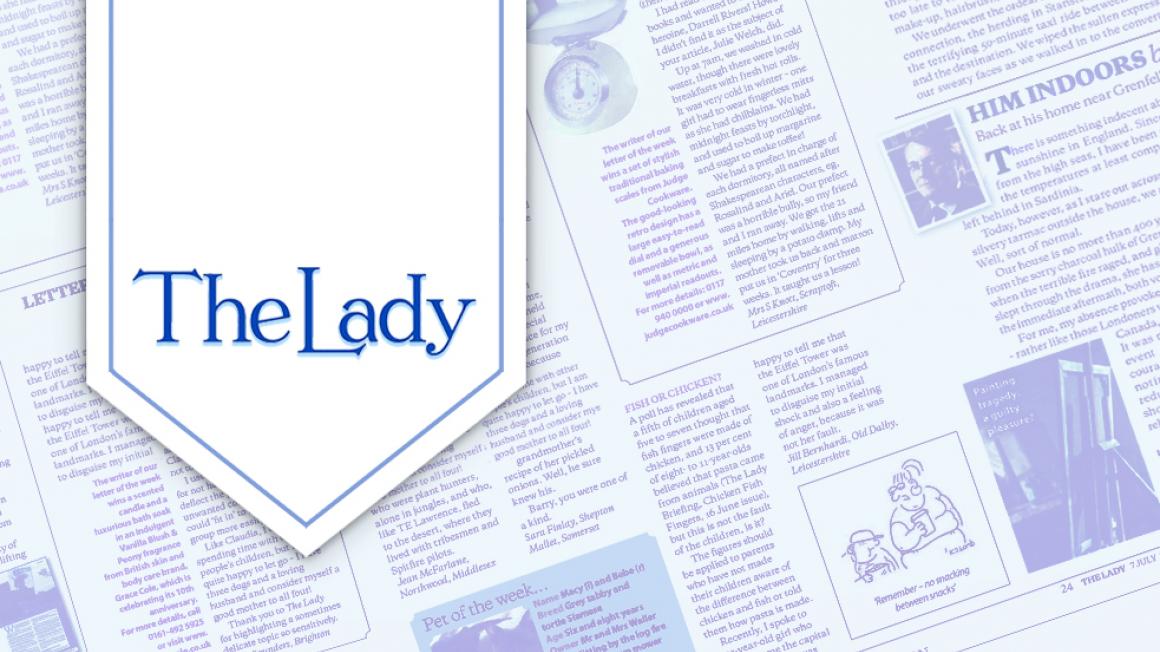The Lady Guide To Modern Manners: 3 August
In these times of feminism and equality, are men still expected to give up their seat on public transport if a woman is standing?
Ivan Seery, Manchester
Dear Ivan,
Oh what a can of worms you do open, Ivan! Olympic-induced congestion (sorry if those Games are a sore subject) might mean that many men, and women, are slamming straight into this difficulty right now.
The age of chivalry is over – or is it? Will the man offering his seat to a woman suffer a humiliating feminist backlash? What if he thinks she is pregnant but she isn't – she's just Rubenesque, of glorious figure? What if he thinks she is frail and elderly, which she may be, but inside she is screaming, 'I'm still a babe!' The kind gesture curdles into the most repellent insult.
In the past it was so much easier. In the 1950s, Princess Paul of Yugoslavia rose during dinner with Cecil Beaton and her husband, Prince Paul of Yugoslavia. She was horrified that the two men carried on talking. 'But I am standing,' she said, whereupon her husband leapt to his feet, saying, 'I do beg your pardon, madam.'
Today many men do give up their seats to a woman, whatever her condition. Are they repulsive sexists? I don't think so. My friend, the novelist Sarah Long, as good a feminist and independent career woman as any I know, always says, 'After a certain age, this kind of gallantry's the only thing left.'
But a woman of strong feminist principle can politely decline the offer of a seat. There's no call for an on-the-spot ideological row.
On the other hand, some men, respecting the equality of the sexes, will remain seated. There's nothing wrong with this either. The secret is to decide what your convictions are, then have the courage of them. Don't panic if other men do differently or even appear to challenge you by offering their seat to an upright female when you have not.
Lurking behind all this, you may have noticed, is a whole raft of other tricky issues – who pays on the first date? Does a man hold a door open for a woman? But they're for another time.
I'd hope that anyone, whether man or woman, would surrender their seat to one who appears to need it more. Various brilliant schemes to short-circuit embarrassing misunderstandings – that pregnant women wear 'Baby on Board' badges, for instance – have not caught on.
There's nothing for it. You have to offer your seat. Let's hope the lady who is, in fact, merely well padded or not as young as she thinks she is, will just be grateful to get the weight off her feet.
To finish on a sour note, if I may – isn't it maddening when children, who are always in large numbers for some reason, are seated on public transport, and adults are left standing?
Please send your questions to Thomas.blaikie@lady.co.uk or write to him at The Lady, 39-40 Bedford Street, London WC2E 9ER.
WHAT TO DO... if you're English
I am alerted to a survey, carried out by the New York Bakery Company (don't ask but it's true), that apparently finds we are bumbling, don't say what we mean, avoid confrontation, use 'sarcasm' (I think they mean irony), understatement and other 'unnecessary' words, amounting to 2 million in a lifetime.
The billions of foreign Olympic visitors (oh no, not that again!) haven't a hope of understanding us. So, a guide has been produced, explaining that when we say, 'Not bad' we mean 'good'. No need to cry then or start an argument.
Should we change? Turn into New Yorkers? My mother asked in a New York shop for postcards: 'Out the door. Left. Two blocks,' was the blunt reply.
The survey misses the point in claiming that when an English person says, 'I see your point of view,' we really mean, 'You're talking rubbish.' These are not unnecessary words. What we really mean is, 'I see your point of view.' It's called diplomacy. We may not be quite sincere, but our desire to avoid giving offence is. The essence of good manners is not always saying what you mean.
Besides, how many of us know what we really mean?



